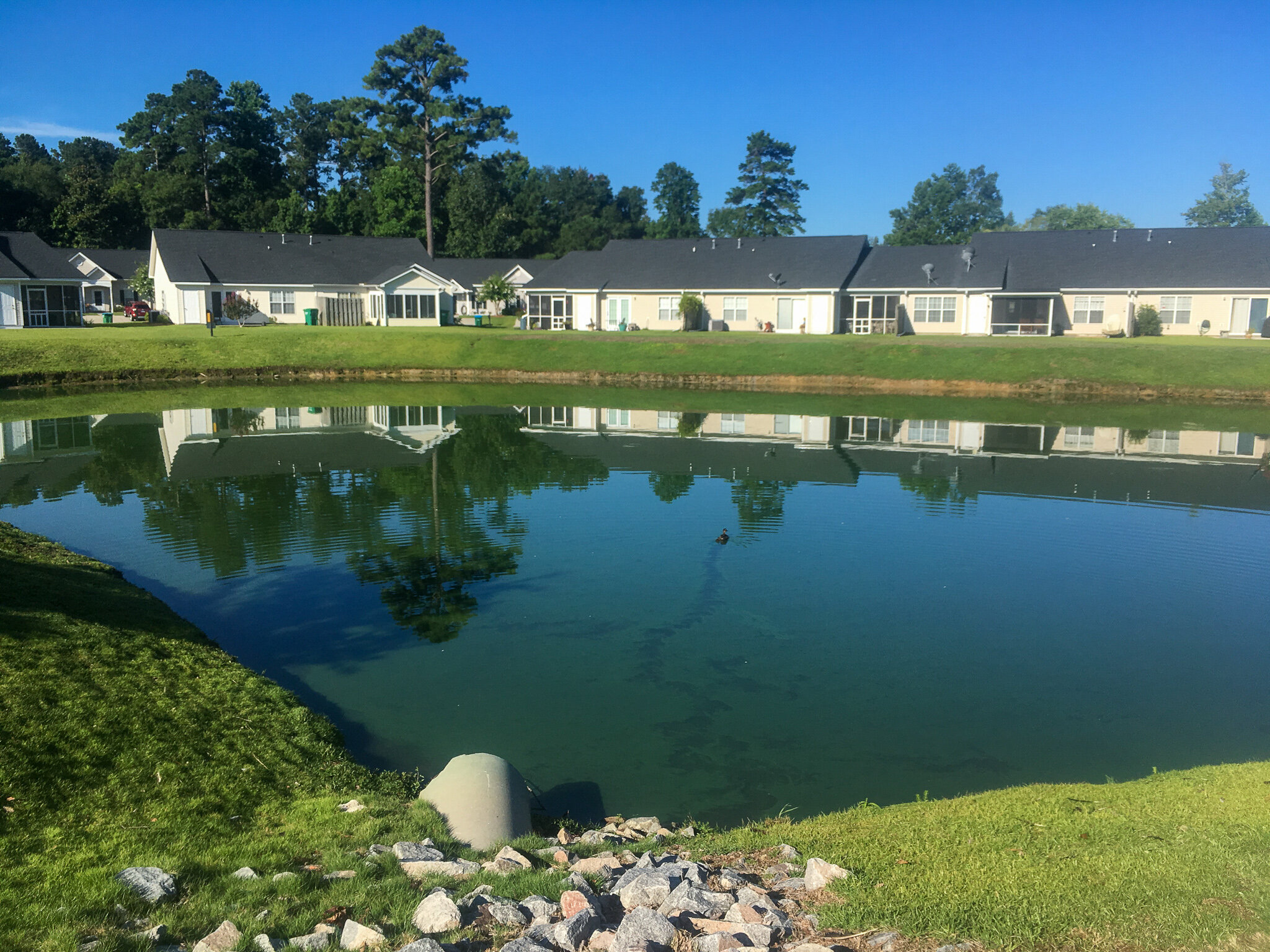Pond Algae Safety: Summer
Pond algae safety is especially important in the summer when the risk for harmful algal blooms increases and people are spending more time outdoors.
Pond Algae Safety: Cyanobacteria is present in this pond. Look closely to see the path of the bird cutting through the cyanobacteria.
Warm summer temperatures bring increased risk of harmful algal blooms (HABs) in lakes, ponds, and stormwater systems. Cyanobacteria can cause algal blooms that produce harmful toxins. These toxins can be harmful to the environment, wildlife, and to people and pets spending time in or around the water.
While people should never swim in stormwater ponds, many apartment communities and HOAs contain stormwater systems that people and pets walk around. HABs in lakes and ponds can produce neurotoxins that can potentially impact people and pets by simply inhaling. Not all blooms are harmful; however, it is impossible to know without testing. Due to this, it is important to know how to keep yourself, loved ones, and pets safe around lakes and ponds this summer.
What to look for:
Water that appears discolored
Foul smelling water
Paint-like streaks in the water
Mats, foam, or scum
Presence of dead fish or other deceased wildlife
Pond Algae Safety: Example of discoloration and paint-like streaks.
Example of cyanobacteria turning the water a reddish color.
Pond Algae Safety From the EPA:
Summer algae pond safety tips from the EPA.
"Look Out For Harmful Algal Blooms." Environmental Protection Agency, EPA, May 2019, https://www.epa.gov/sites/production/files/2019-05/documents/habs-infographic-detailed-2019.pdf .
Pond Algae Safety: In Case of Exposure
Shower and seek medical attention if any symptoms appear in people or pets.
How Can You Help Prevent Harmful Algal Blooms?
Humans and pollution are the major causes of algal blooms. Here are four easy ways you can help!
Do not over-fertilize. Get a soil test to identify the specific fertilizer and amounts required
Eliminate or at least limit use of pesticides
Maintain your septic system
Dispose of pet waste properly
Follow these pond algae safety guidelines to stay safe and healthy this summer!
More information from the EPA. The general public can report harmful algal bloom events and illnesses to local or state health departments.
Learn More
Our invasive and nuisance vegetation experts are here to help with your stormwater algae problems. Please contact us to learn how we can restore and maintain your stormwater device with a customized solution.
Learn how to prevent fish kills due to dissolved oxygen depletion, which is an increased risk in summer.
Subscribe to our monthly newsletter to stay up to date with our latest news!
Like/Follow Facebook, Instagram, Twitter, and LinkedIn.
Dragonfly Pond Works provides stormwater management, pond maintenance, and more in Raleigh, Durham, Charlotte, Wilmington, North Carolina, Charleston, Myrtle Beach, Columbia, South Carolina, Tampa, Naples, Fort Myers, St. Petersburg, Sarasota, Florida, and Atlanta, Georgia.




